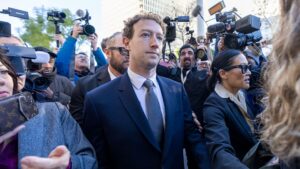Microsoft to Buy Activision Blizzard in All-Cash Deal Valued at $68.7 Billion

The deal, if completed, would sharply expand Microsoft’s already sizable videogame operation, adding a stable of popular game franchises including Call of Duty, World of Warcraft and Candy Crush to Microsoft’s Xbox console business and its own games like Minecraft and Doom. Microsoft said the transaction would make it the world’s third-largest gaming company by revenue, behind China’s
Tencent Holdings Ltd.
and Japan’s
Sony Group Corp.
An acquisition also would mark the latest and biggest move by Microsoft Chief Executive
Satya Nadella
to reshape Microsoft through a string of deals that have helped make the world’s second-highest-valued company a powerhouse in business computing and a rising giant in videogames.
The deal entails significant complications, too. Shares in Activision had been down nearly 30% since California regulators filed a lawsuit against the company in July alleging sexual harassment and gender pay disparity among the company’s roughly 10,000 employees.
Activision shares surged nearly 38% in premarket trading Tuesday after The Wall Street Journal reported it was close to a deal with Microsoft, whose shares fell 1.6%.
Microsoft said in its announcement that
Bobby Kotick
would remain as Activision’s CEO following the deal, and report to Microsoft gaming chief
Phil Spencer.
Since the California lawsuit in July, Activision, Mr. Kotick, and its board of directors have been under intense pressure from shareholders, business partners, and others over the misconduct allegations. Following a Wall Street Journal investigative article in November about Activision’s handling of workplace issues, nearly a fifth of Activision’s roughly 10,000 employees signed a petition calling for Mr. Kotick to resign, and Mr. Spencer told Microsoft employees the company was evaluating its relationship with Activision.
Activision has announced a number of changes in recent months that Mr. Kotick has said are intended to make it a welcoming and inclusive workplace, including a zero-tolerance harassment policy and an end to mandatory arbitration for harassment and discrimination claims.
On Monday, The Wall Street Journal reported that Activision had pushed out or disciplined more than 80 employees since July as part of efforts to address harassment and other misconduct allegations.
The deal follows a boom in the videogame business during the pandemic. It also comes as Microsoft and other technology giants are jockeying for position amid major changes in the sector, including a shift toward cloud-based gaming and the rise of a virtual world known as the metaverse where people can play, work and shop across different platforms using digital avatars.
Mr. Nadella’s Microsoft has shown an enormous appetite for acquisitions—but Activision is more than twice the size of its previous biggest deal. In that earlier purchase, Microsoft paid more than $26 billion for professional social network LinkedIn Corp. in 2016, pushing Microsoft into social media.
Last year, Microsoft made what was then its second largest acquisition, shelling out $16 billion for artificial intelligence company
to help accelerate growth in the healthcare market.
In making these giant acquisitions, Microsoft has been successful largely because it keeps its hands off new entities and provides support in additional funding and technology like Microsoft’s Azure cloud, said analysts. In July, Microsoft said that LinkedIn for the first time surpassed $10 billion in annual revenue.
Microsoft has stumbled in some of its deal efforts, noticeable in the defeat in 2020 of its attempt at buying parts of short-video app TikTok from Chinese parent company ByteDance Ltd. At the time, TikTok faced a threatened ban in the U.S. by then-President
over national-security concerns.
Microsoft also engaged in unsuccessful talks to buy social networking company
and chat startup Discord Inc.
After those deals fizzled, Microsoft decided to double down on investments into its gaming ambitions, one person familiar with Microsoft’s strategy said.
Since taking over as CEO in 2014, Mr. Nadella has spent more than $10 billion to buy more than a dozen game studios, including the companies responsible for the Doom franchise and Minecraft.
In October, at the Journal’s WSJ Tech Live conference, Mr. Spencer, the Microsoft gaming chief, said the company wasn’t slowing down on its gaming acquisition spree. “We’re always out there looking for people who we think would be a good match and teams that would be a good match with our strategy, so we’re definitely not done,” Mr. Spencer said.
Microsoft’s gaming strategy increasingly is focused on growing its subscription business, called Game Pass, which for a monthly fee lets gamers have access to a catalog of games. In the past, Mr. Nadella has likened the Game Pass strategy to the “
for games.” Microsoft announced early last year that Game Pass had 18 million subscribers. With the Activision announcement on Tuesday, Microsoft said it now has 25 million subscribers.
Microsoft on Tuesday said the deal would bolster its Game Pass portfolio, with plans to bring Activision games into the subscription service. With Activision, Microsoft said it would have 30 internal game development studies. The transaction has been approved by the boards of both companies, Microsoft said, and is expected to close by July 2023.
Buying Activision would increase Microsoft’s videogame revenue by about half. Analysts estimate that Activision’s sales in 2021 totaled $8.7 billion, according to FactSet, while Microsoft reported $15.4 billion in gaming revenue for the fiscal year through June, accounting for about 9% of its total.
Trouble at Activision Blizzard
More coverage of the turmoil at the videogame company, selected by the editors
Write to Cara Lombardo at cara.lombardo@wsj.com, Kirsten Grind at kirsten.grind@wsj.com and Aaron Tilley at aaron.tilley@wsj.com
Copyright ©2022 Dow Jones & Company, Inc. All Rights Reserved. 87990cbe856818d5eddac44c7b1cdeb8








